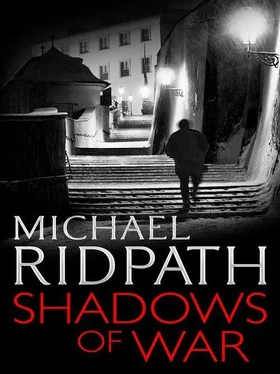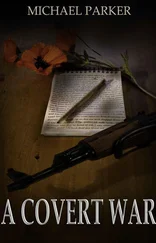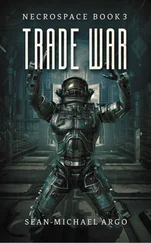Later given the order that we are to be relieved by XIV Corps. Guderian is to be given his own Panzer Group, which of course he deserves. It will be good to stop fighting for a few days, but we can’t sleep yet. Our new Panzer Group headquarters is 200 kilometres away. Maybe once we get there we can have a few days’ rest. We all need it.
Eighteen days since the offensive started. Who would have thought that eighteen days could be so vital? We have achieved more in those eighteen days than the German army achieved in four years in the last war.
Maybe peace will come now.
Downing Street, London, 28 May
Winston Churchill listened to Duff Cooper, the Minister of Information, argue the case for honesty about the latest news from the continent. It was dire. That morning the King of the Belgians had surrendered. Calais had fallen the day before, Boulogne the day before that; 11,400 men of the BEF had been evacuated from Dunkirk so far, leaving behind a quarter of a million more waiting. The French wanted to discuss peace with Germany. They were defeated and they knew it.
Over the weekend the Chiefs of Staff had circulated a dispiriting paper entitled ‘British Strategy in a Certain Eventuality’, that eventuality being the fall of France. The report concluded that if the Germans won complete air superiority, there would be little the Royal Navy could do to prevent invasion.
But Britain wasn’t defeated. Not yet. Not according to Churchill.
Churchill was presiding over the War Cabinet, the small group of five men who ran the war day-to-day: himself, Lord Halifax, Neville Chamberlain and the two Labour ministers Arthur Greenwood and Clement Attlee. While the discussions focused on the details of the war, the unspoken question hung in the air. At what point should Britain admit defeat?
The question had become very close to being spoken the day before, when Lord Halifax had argued that the British should open discussions with the Italians. Afterwards, in the Downing Street garden, Halifax had threatened to resign and Churchill had been forced to apologize and beg him not to. Churchill could not allow the government to be seen to be split on the issue of peace and war.
The Prime Minister studied the adversary sitting opposite him. Halifax had a long, lugubrious face of high-minded seriousness. He prided himself, with justification, on his pragmatism, on his rational mind, on his ability to weigh pros and cons dispassionately. Britain was losing the war and Halifax felt that the War Cabinet should discuss what to do about it.
The trouble was that Halifax had no imagination and no sense of history, both of which Churchill knew he had in spades. Instinct told him, history told him, that at this vital moment it would be fatal to show any sign of weakness. Britain was an island that had not been invaded for a thousand years; it had a glorious history of defending freedom; it had a parliamentary democracy that was the admiration of countries everywhere; it had the greatest empire the world had ever seen. All that was the work of centuries; Churchill would not give it up without a fight.
But he couldn’t defend it single-handedly either. He needed the support of the War Cabinet, of the Conservative Party and of the British people. And he was weak. He had only been Prime Minister for eighteen days, and in those eighteen days the Allied armies had been routed. No one blamed him directly. But Halifax’s quiet appeal to hard-headed pragmatism in a dire situation was difficult for Churchill to counter.
Conrad perused The Times as he waited in an ante-room in 10 Downing Street. He was interested to see no mention of Calais that day, apart from a tiny piece stating that French sources in Paris claimed the town was still probably in Allied hands. It was half past eleven; Conrad had been waiting since ten. His demand that he must meet the Prime Minister with urgent news from France had met with scepticism, but when he had identified himself as Lord Oakford’s son, he was at least admitted.
A Civil Servant approached him.
‘I understand you wish to see the Prime Minister, Mr de Lancey?’
‘Yes. I have some urgent news from France.’
‘As you can imagine, the Prime Minister is very busy today. Perhaps you could tell me and I can pass it on?’
‘No. I must see him myself.’
‘I’m afraid that won’t be possible.’
Conrad had been expecting this. ‘Just tell Mr Churchill I’m here to see him and he can decide if he wants to meet me. Remind him that I saw him at Chartwell two years ago with an important message from Germany.’ That had been that the German officers were planning to overthrow their Führer. ‘Tell him this message is even more vital.’
‘I will tell the Prime Minister and we will be in touch with you,’ said the Civil Servant. ‘Can you give me details of where we can reach you?’
‘I can wait here,’ said Conrad. ‘The Prime Minister really needs to hear this as soon as possible.’
‘I am sorry, Mr de Lancey, you will have to leave.’ The Civil Servant glanced at a moustachioed policeman at the door of the ante-room.
Conrad argued for a few minutes longer, but it was clear he was getting nowhere. In the end the policeman escorted him firmly but politely to the door and out into the street.
Conrad stared desperately at the door of Number 10. ‘I have to tell him. I have to tell him somehow,’ he said to the policeman, because he was the only person there. ‘The future of the war depends on it.’
The constable, who was a large, comfortable man in his fifties, examined Conrad. ‘I shouldn’t say this, sir, but the Prime Minister often lunches at the Admiralty. You might catch him there later on.’
Halifax bided his time. The War Cabinet broke up with Churchill promising to make a statement in the House of Commons preparing them for bad news from France. They agreed to meet again at four that afternoon, when Churchill was sure Halifax would make his move.
Churchill pulled Neville Chamberlain to one side and asked him if he would agree to inviting Lloyd George into the cabinet. The ostensible reason was to strengthen government unity. Lloyd George was known to be defeatist; he had spoken of Hitler in admiring terms in the past, had been opposed to the war and had argued for peace intermittently since its outbreak. But if the worst came to the worst, Churchill preferred the idea of his old political partner Lloyd George taking over from him than someone like Oswald Mosley.
The success of Vidkun Quisling in usurping the Norwegian government in April had shaken Churchill and was one of the reasons why he had sanctioned locking up Mosley and Maule Ramsay. But they could always be let out of prison again once Churchill had gone.
Neville agreed to Lloyd George. Churchill then went off to lunch at the Admiralty to work on his speech to the House. He was still lodging there, having allowed Neville and his family to stay on at 10 Downing Street.
The food, and especially the wine, fortified him and, clutching a newly lit cigar, he left the Admiralty for Parliament in slightly better spirits.
‘Prime Minister! Prime Minister! May I have a word?’
Churchill glanced at the young man trying to attract his attention. He recognized him. ‘Mr de Lancey?’
‘That’s right, sir,’ said Conrad. ‘I must speak to you.’
Churchill grinned. ‘If I stopped and talked to everyone who wanted to speak to me, I’d never get anywhere.’
‘What I have to say is more important than the message I gave you at Chartwell two years ago.’
Churchill frowned. He was intrigued. He had liked de Lancey. They had talked then not only about his German friends’ plans to remove Hitler, but about history and about bricklaying. Those days, which had seemed so dark at the time, now seemed a period of tranquil unemployment. How he would love to be working on his kitchen-garden wall at Chartwell and chatting to this young man!
Читать дальше












